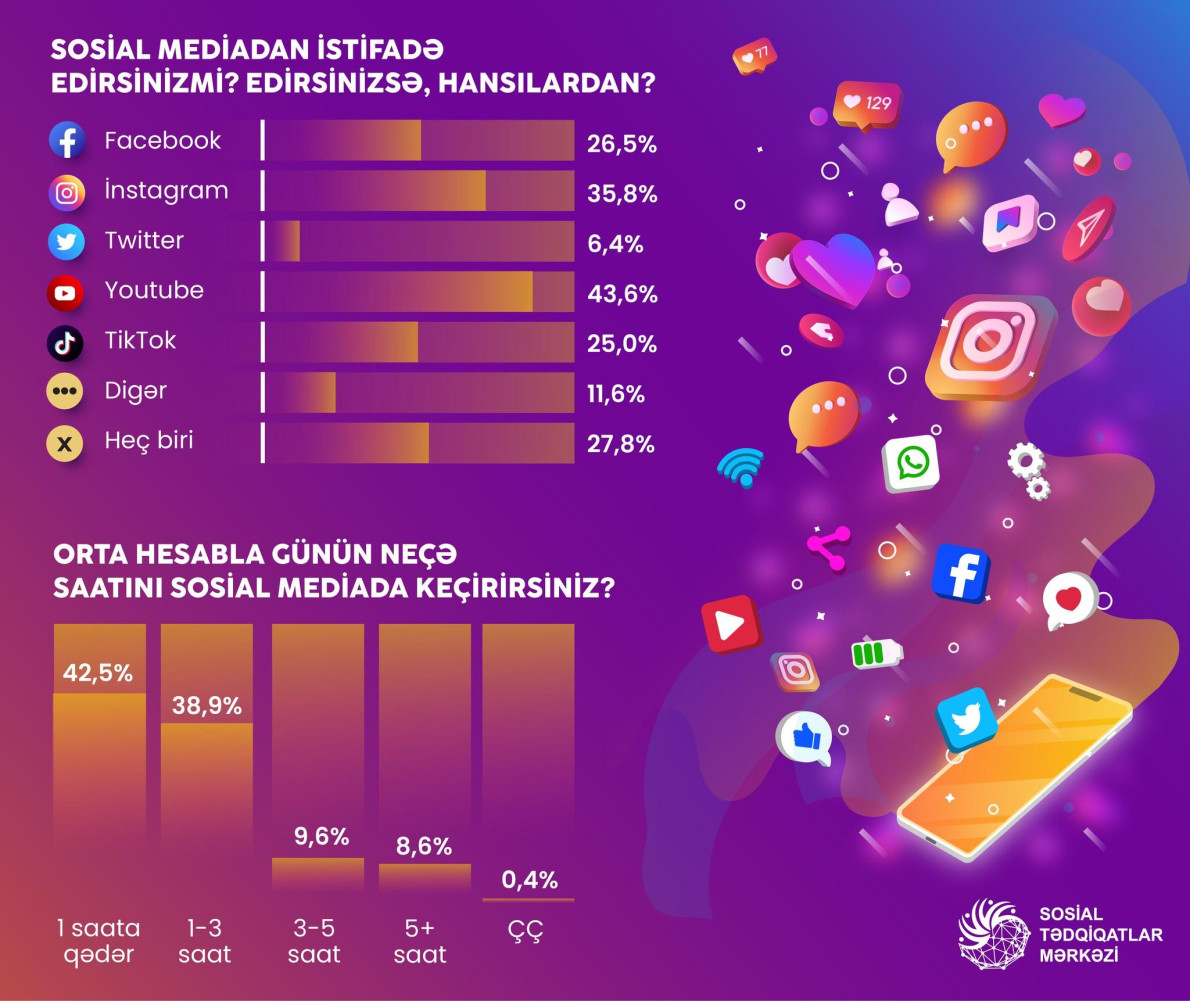What is SMM?

In today’s world, where social media has become an integral part of our daily lives, understanding and effectively utilizing SMM (Social Media Marketing) is essential for business success.
We will look at SMM from different perspectives – from simple definitions to analyzing successful campaigns. We will explain how data and analytics can help create outstanding strategies and how managing negative feedback can become a crucial part of engaging with your audience.
What is SMM in simple terms?
Social Media Marketing (SMM) is a powerful tool in the marketing world, allowing brands to interact with their audience through social media platforms such as Facebook, Instagram, Twitter, and others. Simply put, it’s a way to share information about your business, products, or services using popular social networks.
The main idea of SMM is not just to present your brand but to create interaction with it. This includes creating engaging content, responding to audience questions, conducting surveys, running contests, and much more. The primary goal is to establish close contact with your target audience and create a positive perception of your brand in the world of social media.
SMM in Numbers: Overview of Social Media Statistics in Azerbaijan
Let’s take a look at which social networks are most popular in Azerbaijan:
- General Statistics:
- At the beginning of last year, there were 5.2 million social media users in the country, representing 50.7% of the population. According to public opinion polls, 72.2% of the population over 18 actively uses social media.

- Statistics by Social Media:
- "Facebook": Meta’s advertising data shows that there are 1.6 million Facebook users in Azerbaijan, of which 31.7% are women and 68.3% are men.
- "YouTube" and "Instagram": According to GlobalStats, YouTube and Instagram have held leading positions among popular social platforms in the country since the end of last year.
- User Preferences:
- Among social media users, 43.6% prefer YouTube, 35.8% prefer Instagram, 26.5% choose Facebook, 25.0% use TikTok, and 6.4% opt for Twitter. Men tend to use social media more often, and this trend remains consistent across different platforms.
- Age Preferences:
- Users aged 18-35 make up the main audience of social media, with high levels of usage on Instagram, YouTube, and TikTok.
These insights help to understand social media dynamics in Azerbaijan, highlighting popular platforms and user preferences across different demographics.
Who is SMM Especially Relevant For?
- Small Businesses:
- Over 90% of small businesses active on social media report an increase in their customer base.
- E-commerce:
- More than 60% of online stores in Azerbaijan acknowledge the impact of SMM on increasing conversion rates.
- Government Agencies:
- 82% of government organizations use social media to inform citizens.
- Creative and Artistic Industries:
- More than 75% of those in creative industries confirm that SMM helps build brand recognition.
- Professionals and Personal Brands:
- 95% of professionals believe SMM is crucial for building a personal brand and attracting clients.
- Educational Institutions:
- 68% of educational institutions in Azerbaijan use social media to attract students.
- Tech Startups:
- 87% of successful tech startups in the country recognize the role of SMM in attracting investments.
SMM significantly impacts various sectors in Azerbaijan, delivering concrete results and growth.
Using Influencers: How Collaborating with Bloggers and Opinion Leaders Can Impact Your SMM Strategy
Collaborating with influencers on social media has become a key component of successful SMM campaigns. Let’s look at how such partnerships can positively affect your strategy:
- Audience Expansion:
- Influential bloggers have vast followings, allowing your brand to quickly reach a new audience.
- Trust and Loyalty:
- Recommendations from opinion leaders carry the trust and loyalty of their followers, helping to create a positive perception of your brand.
- Creative Content:
- Influencers bring their unique style to content creation, making it more engaging and original.
- Participation in Trends:
- Collaborating with bloggers keeps your brand in the spotlight, participating in trending topics and increasing visibility.
- Measuring Effectiveness:
- Unique links and promo codes generated by influencers allow you to measure the impact of the partnership on sales and conversions more accurately.
Attracting attention through influencers has become an essential element of an effective SMM strategy, enriching your content and strengthening engagement with your audience.
SMM Analytics: How Data and Analytics Optimize Strategies and Achieve High Results in Social Media
Analytics plays a key role in optimizing SMM strategies. Here’s how using data can enhance the effectiveness of your social media strategy:
- Defining Key Metrics:
- Analyze metrics such as audience engagement, conversions, traffic, and other key indicators to understand the effectiveness of your campaigns.
- Audience Profiling:
- Use analytical data to better understand your audience, identifying preferences, behaviors, and interests.
- Evaluating Content Effectiveness:
- Study which types of content resonate best with your audience and adjust your strategy accordingly.
- Competitor Monitoring:
- Track competitor activity in social media, analyzing their strategies to identify strengths and weaknesses.
- Content Calendar Planning:
- Base your content calendar on data from previous publications, optimizing time slots and formats for maximum engagement.
- Improving Ad Campaigns:
- Analyze the performance of ad campaigns, adjusting budgets and targeting to achieve maximum conversion.
- Responding to Feedback:
- Use analytical data to manage feedback more effectively, tailoring your responses to audience needs.
Integrating analytics into your SMM strategy allows for more precise and targeted campaigns, as well as quick responses to audience preferences and social media trends.
Dealing with Negative Feedback: Strategies for Managing Negative Comments and Reputation in Social Media
Managing negative comments is essential for maintaining your reputation on social media. Effective strategies include:
- Quick Response:
- Address negativity promptly, showing that you care about customer concerns.
- Proactive Moderation:
- Implement pre-moderation systems to prevent offensive comments from being posted.
- Public Apologies:
- When errors or misunderstandings occur, offer public apologies and suggestions for resolving the situation.
- Private Dialogues:
- Resolve conflicts through private messages to avoid public disputes.
- Focus on Positivity:
- Actively promote positive aspects of your brand to balance out the negative.
- Discussion Monitoring:
- Regularly monitor discussions to quickly respond to potential issues.
Handling negativity on social media requires a strategic and thoughtful approach to maintain a positive reputation and audience trust.
If you have any questions or need more information about our SMM services, feel free to contact us. Our team is ready to provide consultations, clarify details, and develop a personalized strategy to help you achieve your goals in the online space.



